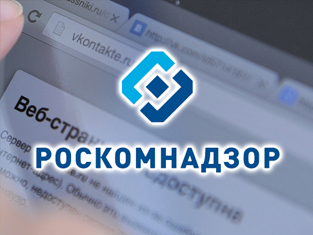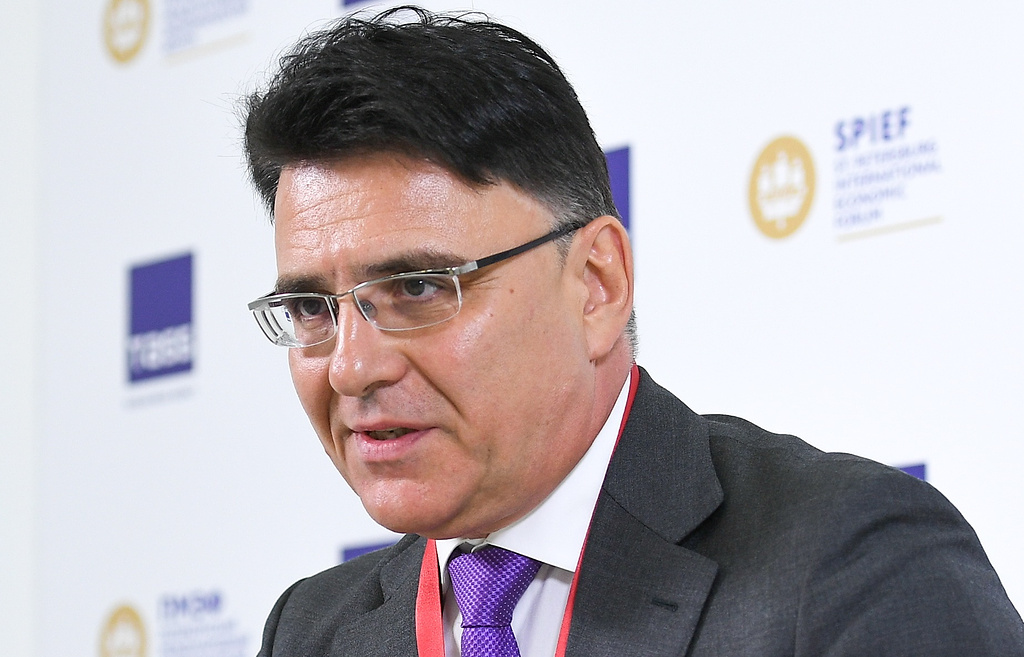The head of Roskomnadzor believes that around the situation with the Telegram "a lot of foam"
 The other day, the head of Roskomnadzor, Alexander Zharov, gave a detailed TASS interview . The conversation with the head of the department took place during the St. Petersburg International Economic Forum. Zharov gave answers not only regarding the situation with Telegram, but also about what Facebook, WhatsApp and Viber may be facing.
The other day, the head of Roskomnadzor, Alexander Zharov, gave a detailed TASS interview . The conversation with the head of the department took place during the St. Petersburg International Economic Forum. Zharov gave answers not only regarding the situation with Telegram, but also about what Facebook, WhatsApp and Viber may be facing.The main focus of the agency devoted to the protection of user data. In his opinion, the digital economy is now developing, and in its conditions a new concept appears - “digital personality”. So Zharov calls "digital footprints" that a person leaves on the Internet and which can affect his personal life. It is because of the importance of this data, according to the official, that they need to be protected.
In general, the official says that now it is necessary to find a way to ensure an adequate level of protection of the information security of the state, business and individual.
“Digital Footprint” can be called custom Big Data. Since all this information is of great importance for the development of the digital economy, business processes will be gradually optimized for data usage. In particular, in order to explore individual customer preferences. This allows you to ensure that the business processes themselves are as efficient as possible.
')
Well, the data must be provided with reliable protection, such that information cannot be stolen, and used only in accordance with the law. “I think that Roskomnadzor’s attention and our activities will be focused precisely on maintaining this balance of efficiency for the business and at the same time protecting the personality, including in the digital environment,” the official said.
It was interesting to find out what Zharov thinks about blocking applications. As it turned out, he believes that this is the last step that needs to be done only if no other measures help. As for the blocking of Telegram, Zarov regards it as effective (recently, material showing the opposite was published on Habr.com): "Today the outflow of advertising from the Telegram channels is about 25%, the outflow of users also varies by up to 25%, and this is due to the fact that it becomes inconvenient to work with Telegram. On some smartphones the picture is not loaded, the video goes badly, audio and video calls are poorly made. And for the user, if this is not a politically engaged user, the convenience of the application is important. "
According to the representative of Roskomnadzor, Telegram "hides behind a living shield from the subnetworks of large transnational companies and specific resources that are in the same hosting with it." Zharov considers the current situation “not very good”.
Another important point is the story of what Roskomnadzor will do with resources outside of Russian jurisdiction that violate Russian legislation on the protection of user data. According to him, the user who found some of his data on a specific resource outside the zone .ru, and wants to remove them, but the site refuses to do so, then you need to contact Roskomnadzor. The Office will verify the application and if the information is confirmed, the site owner can be either fined or blocked (as a last resort). Zharov argues that until now, the majority of user complaints (he said, thousands) were decided out of court.

Alexander Zharov. Source: TASS
The head of Roskomnadzor reported on the fight against piracy on the Internet. He says that anti-piracy legislation has been operating in Russia for five years. During this time, Roskomnadzor received more than 3.2 thousand definitions of the Moscow City Court on interim measures. All objects of copyright, except photos, are protected by domestic legislation. At the moment, 2,224 pirate sites are constantly being blocked, and they are changing their jurisdiction. Among other sites - Rutor, Rutracker, HDRezka.
Zharov is confident that the fight against piracy is bearing fruit: “And the fight against piracy, in fact, is very effective, very significant. This is the money that the right holders start to earn and who come to the industry. ” Zharov makes conclusions about the money that right holders receive on the basis of cinema attendance statistics - in 2017 69.5% of the population attended the film premieres. In addition, 38% of active Internet users buy legal content and pay for it.
This year, Roskomnadzor plans to conduct a comprehensive audit of well-known social networks and instant messengers. In particular, Facebook and its products will be affected.
Interestingly, Zharov continues to insist that Roskomnadzor is not involved in the inoperability of the mass of sites, the problems that have arisen since the blocking of the Telegram messenger began. “Therefore, there is a lot of foam in this story. However, of course, a number of resources suffered. It is regrettable for us, and we are taking action to minimize this effect, ”the head of Roskomnadzor said. Now, he says, only individual IP addresses are blocked, not subnets. The blocking of individual addresses is made only after the agency is convinced that “there are no other resources”.
At the end of the interview, Zharov promised that Roskomnadzor would make every effort to ensure that there would be no damage to good resources in the future.
Source: https://habr.com/ru/post/359334/
All Articles